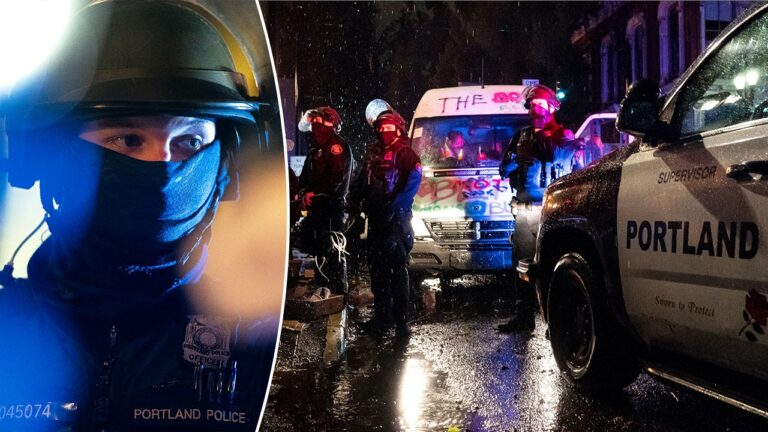Police Recruitment Surge in Portland Faces Training Backlog
PORTLAND, Ore. – Portland is seeing a surge in new police recruits after mass resignations and low morale following the 2020 protests, according to the head of the police union. However, there’s a significant hurdle: a long training backlog.
“Our hiring has increased significantly,” said Portland Police Association President Aaron Schmautz. “The real problem is the extensive backlog at the Department of Public Safety Standards and Training (DPSST), so it takes months before our new recruits can even start their training.”
This officer shortage has led to unusually slow 911 response times. High-priority calls now wait around 20 minutes on average for a response, compared to just 8 minutes before 2020.
“Call times in Portland are at an all-time high,” Schmautz lamented. “That’s unacceptable. In an emergency, you need immediate help.”
One incident involved a Portland doctor who was knocked unconscious in a random attack and had to wait 20 minutes for police assistance. Last fall, many residents felt like the police had almost disappeared.
The 2020 George Floyd protests and the defunding of the police movement caused many officers to leave the department. Retired officers resisted rehiring attempts, and new applications dwindled. However, the situation seems to be changing, with more people expressing interest in becoming police officers in Portland.
Schmautz revealed that around 1,000 people have applied so far this year, partly because of competitive pay, offering nearly $80,000 as an entry salary plus a signing bonus, and increased support from city leadership.
But the problem now lies in getting these officers trained.
Every new officer, deputy, and trooper from the state’s 200+ law enforcement agencies must undergo basic training at the Oregon Public Safety Academy. This facility also trains corrections officers, parole officers, and others, all under one roof.
The police program was originally designed to handle an annual turnover rate of about 10%, but this rate surged after 2020.
“Large agencies across the country faced higher turnover rates,” explained DPSST deputy director Dr. Staci Yutzie. “Portland, in particular, was hit harder than smaller agencies.”
With the recent increase in hiring to compensate for the lost officers, the academy can’t keep up with the demand.
“We’ve witnessed a rapid culture change in law enforcement in just two years,” noted DPSST director Phil Castle.
New officers must attend the 16-week training academy within 90 days of being hired, as per state law. The wait was recently as long as seven months but has now improved to four months. The legislature has also approved increased class sizes in November on a trial basis to alleviate the backlog.
“We’re quite optimistic about this. It’s a significant effort, something we’ve never done before,” Yutzie stated. “We’re already seeing improvements in wait times and expect this trend to continue.”
Portland’s training requirements, in addition to the state academy, are longer than national and regional norms. It takes 18 months to fully train Portland officers, even with the backlog improving. Currently, around 100 out of the city’s 800 sworn police members are in training.
“We were short about 1,500 shifts per month in the spring,” Schmautz revealed. “That’s 15,000 hours of policing.”
There are often dozens of emergency calls waiting when officers start their shifts, whereas it used to be just two or three calls.
A new report from the Manhattan Institute calls the Portland Police Bureau “one of the most understaffed forces in the nation,” ranking 48th out of 50 large cities in its police-to-population ratio. Addressing the training backlog may not resolve all the bureau’s issues.
Nationwide, the rate of police officers has generally been 2.2 to 2.4 officers per 1,000 residents. In Portland, that would equate to about 1,450 police employees. However, the bureau is authorized for 881 sworn members and is currently about 70 short.
Cities like Boston, Detroit, and Memphis have nearly double the number of officers as Portland, even though they have similar populations. Schmautz acknowledged that more officers aren’t necessarily the only solution but stressed the importance of carefully addressing the city’s needs.
Schmautz remains optimistic, stating, “We just hired 13 police officers last week. That shows people are willing to be part of the conversation.”

